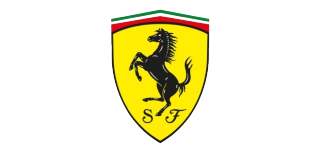
F1 history stats
F1 season 2026 stats
F1 season 2026 results
Personal Information
Mercedes Team Biography
If you want to tell the story of the Mercedes team in F1, it is worth starting in 1953. It was at this time that the Chairman of Daimler-Benz AG, Fritz Könecke. He formulated an objective for the relaunch of the brand's international racing activities: Mercedes-Benz should win a double world championship in 1954, in Formula 1 and for sports cars with factory drivers. In the second European race of the season, the French Grand Prix, the new Silver Arrows took to the start line for the first time. During practice, the W 196 R car achieved the fastest time in its race debut on 4 July in Reims, exceeding all expectations of the public and the competition in the process. The newly engaged Argentine driver Juan Manuel Fangio and Karl Kling took a double victory. This sensational success also had historical implications as 40 years earlier, on 4 July 1914, Mercedes racing cars had won the French Grand Prix in Lyon. Fangio won three more races during the season and became world champion in 1954 and did it again in the following season, winning four of the six races and retaining the championship. After Fangio's success in 1955 and a horrific accident in the 24 Hours of Le Mans that claimed 83 victims, Mercedes management decided to withdraw from motorsport.
Mercedes returned to Formula One in 1994 as an engine manufacturer in partnership with Brixworth-based British independent engineering company Ilmor, which developed their engines. The company won one constructor's title and three driver's titles in its partnership with McLaren, which lasted until 2009. In 2005, Ilmor was rebranded as Mercedes AMG High-Performance Powertrains.
Mercedes' modern rebirth in F1 began when Mercedes bought the Brawn GP team led by Ross Brown in 2010. The team has generated a lot of excitement from the start because of Michael Schumacher's sensational return to F1. Unfortunately, his comeback was not successful. The first three podiums in Mercedes' debut season were achieved by Nico Rosberg. Also, Nico scored a breakthrough pole position in the 2012 Chinese Grand Prix and the first win for the factory Mercedes team. In the 2013 season, Michael Schumacher was replaced by Lewis Hamilton. By 2016 Lewis and Nico had fought several epic title battles while the Silver Arrows swept all before them, becoming one of the most dominant forces of the modern F1 era. In 2014 and 2015, the title was won by Lewis Hamilton. Nico Rosberg beat his teammate in the 2016 season before announcing the end of his racing career in December.
At the start of 2017, Valtteri Bottas was announced as Nico Rosberg's replacement for the 2017 season, with Mercedes winning the constructors' championship for the fourth consecutive year in 2017. Lewis Hamilton became the first British driver to win four world championships. Mercedes finished the 2017 season with 12 wins out of 20 races. For the 2018 - 2021 seasons, the driver line-up remained unchanged. In 2018 Mercedes won the fifth consecutive constructors' title at the Brazilian Grand Prix after Hamilton's win. This season Mercedes won 11 races (all by Hamilton) out of 21. At this point, Mercedes became the second team in F1 history to win five driver and constructor titles in a row. Ferrari accomplished this between 2000 and 2004. The 2019 and 2020 seasons were mainly dominated by Mercedes drivers. In 2020 team debuted its 'Dual-Axis-Steering' system during pre-season testing. It allowed the driver to change the toe of the front wheels by pulling the steering wheel. This allows the driver to optimise the car for better tyre warm-up on the straights with no toe and better mechanical grip in corners with the positive toe. This system was allowed in the 2020 season but was outlawed the following season. During the 2020 Sakhir Grand Prix weekend, Lewis Hamilton tested positive for coronavirus, causing Williams driver and Mercedes junior George Russell to take his place in the car. The 2021 team failed to win the drivers' championship for the first time in the V6 turbo-hybrid era, with Lewis Hamilton being overtaken by title rival Max Verstappen on the final lap of the season-ending Abu Dhabi Grand Prix following a controversial safety car restart. The actions of FIA race director Michael Masi regarding procedures used during the late safety car resulted in Mercedes filing an appeal to cancel the results of that race. The team decided to withdraw this appeal itself in the end. Hamilton finished second in the championship, eight points behind Redbull driver Max Verstappen. The team won the constructors' title for a record eighth consecutive season.
Mercedes became one of the most successful teams in Formula One history, winning seven consecutive Drivers titles from 2014 to 2020 and eight Constructors' titles from 2014 to 2021. The team also set the record for the most wins in a season (19 in 2016) and the most consecutive Constructors' titles. The manufacturer has also collected over 200 victories as an engine supplier and ranks second in Formula One history.